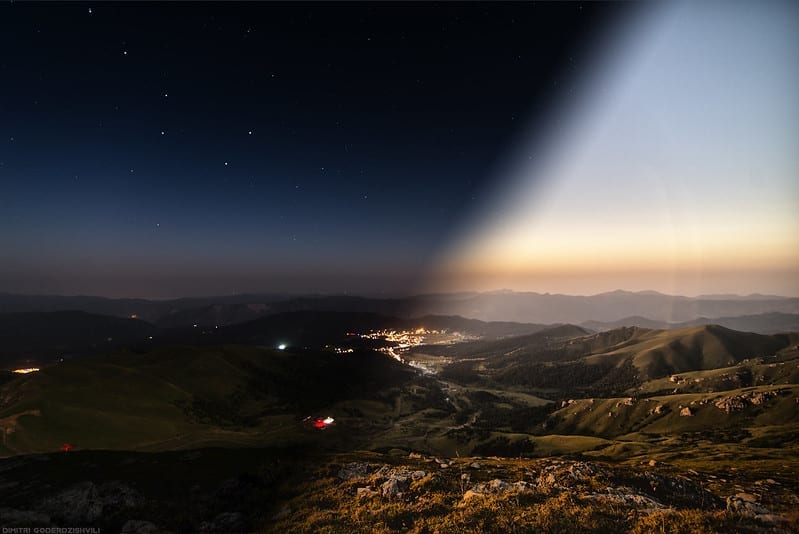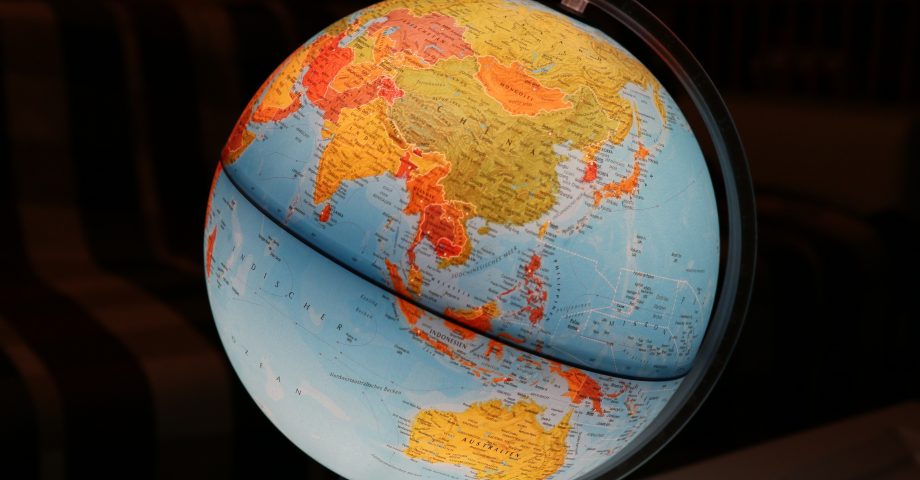The equator is an imaginary line that we use to help measure the planet. There’s latitudinal lines, longitudinal lines – and in general, things tend to really hot up the closer you get to the equator!
Imaginary or not, there’s a lot to learn about this line – so here are some fun facts about the equator to inspire you.
1. When did we first start measuring the equator?
The first detailed maps showing the equator were written in China. They date back to 500 BC. The equator appears as a flat line on a flat map of the world!
2. Who actually started drawing the equator?
Pythagoras was a Greek philosopher, mathematician and astronomer. Combining those talents, he is credited with creating maps amongst the earliest configurations of those which today’s are based upon.
3. How much sunlight does the equator get?
During equinox, both hemispheres get the same amount of sunlight. The equator has 12 hours per day of sunlight!

4. What is a celestial equator?
A celestial equator is defined as a plane which passes through the centre of a planet. Celestial planes are studied by astronomers as well as scientists.
5. Is the Earth’s magnetic pull strong at the equator?
The Earth’s magnetic field is weaker at the equator. It is stronger at the poles, where it is vertical.
6. Does it ever snow around the equator?
On the highest mountains at the equator, some are snow capped! Situated exactly on the Equator, Cayambe is the name of a volcanic mountain which is permanently snow capped. It is the only place on Earth where the exact 0 degree of latitude bisects the snowy peak, on a slope at 4,690 metres. The mountain reaches a height of 5,790 metres, total.
7. The sea water is pretty much the same here as it is at the poles.
The sea water is less salty at the equator and at the polar regions – but that’s just about the only thing they have in common! Sea water is less salty at the poles because it is diluted by the frequent heavy amount of rainfall. At the poles, sea water is diluted by melting snow and melting glaciers.
8. It’s extremely hot out here!
The average temperature at the equator on Earth during summer in the afternoon at the lowlands is between 31 degrees C and 23 degrees C.That is 88 degrees F or 73 degrees F, respectively.
9. What animals live at the equator.
A variety of animals live at the equator. These include elephants, pythons, leopards, monkeys, buffalo and gorillas.

10. What’s the Great Circle?
The equator is sometimes referred to as the ‘Great Circle’ because of its latitudinal position.
11. What does orthogonal mean?
Orthogonal refers to the intersection of where the axis rotates on the surface of a sphere in relation to the equatorial plane.
12. Which countries lie on the equator?
The continents of South America, Asia and Africa are all crossed by the equator. That covers Indonesia, Maldives, Kiribati, Ecuador, Brazil, Colombia, Gabon, Republic of Congo, Congo DR, Sao Tome, Somalia, Uganda and Kenya.

13. The equator crosses plenty of water, too.
Three oceans are crossed by the equator, they are the Atlantic Ocean, the Indian Ocean and the Pacific Ocean.
FAQs about The Equator
Why is the equator so hot?
The heat you feel when visiting countries near the equator is due to the tilt of the planet. Those countries around the equator will tilt closer to the sun and therefore get more of the warmth - simple!
Can you live on the equator?
Yes, many people live on the equator, or around the region. However, as you can imagine, it does take some adapting to! Despite the fact that the equatorial regions are extremely warm, there are some spots where you can expect snow, too.
Is the equator the hottest spot on Earth?
No - the hottest place on Earth, on record, remains Death Valley, California, US. You’re going to need to keep yourself pretty hydrated out here…
Do you know any fun facts about the Equator? Share them in the comments below!










